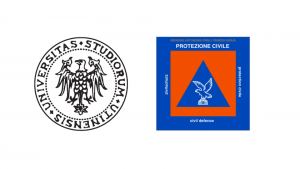The BORIS2 project consortium consists of the following organisations:
- Italian Center for Research on Risk Reduction – CI3R (coordinator)
- University of Ljubljana
- Disaster Competence Network Austria (DCNA)
- University of Montenegro
- TED University

The following organisations are part of BORIS2 as associated partners:

More in-depth information
The Consortium “Italian Centre for Risk Reduction” (CI3R) operates on a non-profit basis with the aim of promoting research, technology transfer and training activities in the field of multi-risk reduction, for a more profitable achievement of the objectives pursued by public policies in this field, in accordance with the relevant national, European and international programmes. CI3R benefits from the multi-risk competence and skills of its members, four of which will contribute to BORIS2 as Affiliated Entities, namely: (1) the EUCENTRE Foundation (EUC in the following), a non-profit training and research centre with dedicated sections specialising in disaster risk research; (2) the ReLUIS Consortium, a no-profit inter-university consortium established with the purpose to develop and coordinate research activities in the field of structural and earthquake engineering and seismic risk; (3) the CIMA Foundation, a non-profit research organization committed to promote the study, scientific research, technological development and higher education in engineering and environmental sciences, within the fields of civil protection, public health and aquatic and terrestrial ecosystems conservation, (4) the Italian National Institue of Oceanography and Applied Geophysics – OGS institute, a public research institution whose expertise is applied in the field of earth, sea and polar sciences to contribute to the dissemination of scientific knowledge and to solve environmental, economic and social problems. CI3R is the Coordinator of BORIS2 and the WP leader of WP1 and WP3.
University of Ljubljana (UL) is Slovenia’s oldest and largest university, with a long-standing record of excellence in research and education. The UL has expertise in seismic, flood and multi-risk assessment. It was the primary partner in establishing the pilot cases in BORIS because both pilot cases included cross-border sites with Slovenia. UL led the Slovenian National Platform on DRR and prepared the technical background for establishing Resolution on enhancing seismic resilience in Slovenia. The UL team is involved in all WPs of BORIS2 and is the leader of WP4.
Disaster Competence Network Austria (DCNA) is an Austrian non-profit organisation and network of research institutes, policy makers, first responders, and other stakeholders in disaster risk reduction and disaster management. DCNA’s goal is to interconnect researchers and research institutions, work on disaster and security research projects, and build bridges from science to practice and policy. In BORIS2, DCNA’s main role is leading WP5 and WP6, building on its strong national and international network to support the project success.
The University of Montenegro (UoM) was founded in 1974 and is the oldest institution of higher education in Montenegro. It has 19 faculties and three institutes, with an academic community of about 17,000 active students at all levels of study, and more than 1,000 academic, professional and other staff. The Faculty of Civil Engineering (FCE UoM) is an organizational unit of University of Montenegro and licensed scientific research institution established in 1980. Key activities of FCE UoM are education and scientific research in the broad domain of civil engineering. In BORIS2, the UoM main role is leading WP2.
TED University (TEDU) was founded in 2009 by the Turkish Education Association (TED) as a progressive academic institution offering an integrated approach to higher education and a high-quality student-focused educational experience. TEDU has research and project portfolio under 5 faculties and currently implementing various nationally or internationally funded projects. On the other hand, TEDU is member of many national/international organisations which provide wide network of higher education institutions and research centres. Additionally, TEDU has an affiliation named TEDUTECH (Technology Transfer Office of TEDU) which is responsible for contracted research and IP commercialization activities. TEDU’s Department of Civil Engineering provides an extensive selection of both undergraduate and graduate courses, focusing on various research domains, including seismic hazard and evaluation, the rehabilitation of existing reinforced concrete buildings, physical and numerical modelling of hydraulic structures, river hydraulics, coastal engineering, green buildings, and sustainable construction practices. In BORIS2, the TEDU is involved mainly in WP2 and WP4, while also participating in other WPs.
The University of Udine (UNIUD) is an Italian public university founded in 1978 as part of the reconstruction plan of the Friuli Venezia Giulia Region of Italy after the devastating earthquake in Friuli in 1976. Its institutional aim is to provide higher education and conduct scientific research, as well as disseminate culture, knowledge, and research results, in order to contribute to the socio-economic development of the territory. Due to its origins, the University of Udine has been developing disaster-oriented research and teaching programs for prevention and protection against disastrous events since its foundation. In particular, the UNESCO Chair on Intersectoral Safety for Disaster Risk Reduction and Resilience is established at UNIUD. This UNESCO Chair performs scientific activities in the field of UN DRR policies at both the international and local levels. UNIUD as AP of BORIS2 will ensure active stakeholders’ involvement by participating in WP6 and providing input for WP2 and WP4. Moreover, UNIUD will be part of the BORIS2 internal Advisory Board.
The regional Civil Protection of the Friuli Venezia Giulia region (CP-FVG) in Italy is responsible for coordinating all the organizational measures and actions, in their explorative, regulatory and managerial aspects, aimed at guaranteeing, in a framework of security of the regional social systems, the safety of people and their assets and of the environment with respect to the onset of any potentially life threatening situation or event which could entail serious damage or danger and that must be faced with extraordinary measures and timely assistance. CP-FVG as AP of BORIS2 will ensure active stakeholders’ involvement by participating in WP6 and providing input for WP2 and WP4. Moreover, CP-FVG will be part of the BORIS2 internal Advisory Board.
